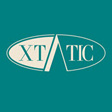Medication is used by people all over the world to treat life-threatening illnesses, prevent pregnancy, and manage chronic diseases. However, even in advanced economies, people unknowingly use counterfeit medications daily.
While they are produced and packaged to look like genuine brand-name medications, counterfeit drugs frequently lack the majority of the active ingredients that are listed on the label. Sometimes the active ingredients in these fake medications are missing, so they just don’t offer the necessary therapeutic value. In the worst situation, some might include hazardous materials.
“Some fake medicines have been found to contain mercury, arsenic, rat poison, or cement,” according to Interpol. (1)
Blockchain technology (BCT) can counter this plague.
It helps track and verify the authenticity of drugs and medical devices, preventing fraud and counterfeit products. In this article, we will explore the latest trends and innovations, and use cases regarding this promising technology.
Why is there a need for innovation in healthcare?
Even though the healthcare sector is the most regulated one, the regulations just may not be enough to achieve safety and full transparency.
Data breaches
Due to the sensitive nature of the information, securing patient data is crucial. The consequences are severe, including financial losses and damage to the trust between patients and healthcare providers.
According to an IBM report dated July 30, 2024, the healthcare market experienced the highest average costs associated with data breaches of any health industry, reaching $9.77 million (2).
According to the report:
- 63% of businesses want to spend more on cybersecurity.
- The cost of a healthcare data breach has gone up by 10% since 2023.
- According to 70% of impacted healthcare organisations, breaches resulted in significant or extremely significant disruptions.
Fragmented health systems
As we are talking about patient information, history has shown that the systems that store this data are fragmented from each other. The healthcare information is generally retained in what are called siloed systems, which don’t communicate with one another very well.
This fragmentation makes sharing of all patient health information across different health care providers unnecessarily time-consuming and could instead be seamless. Moreover, it raises other concerns that incomplete clinical records might result in treatment mistakes, which can cause harm.
If a patient doesn’t have the right insurance coverage, trying to transfer from a primary care facility to a more specialized center may be confusing, challenging, or even impossible. Fragmentation therefore contributes to late-stage disease and increased mortality rates by delaying diagnosis and treatment initiation.
Due to these obstacles, patients in Latin America often have low screening rates, receive delayed referrals, and occasionally choose not to seek medical attention at all. (3)
Lack of transparency
Clinical outcomes should also be transparent so that patients can make more informed decisions when choosing a health provider. As the prime minister of the United Kingdom said in 2011: “Information is power, and by sharing it, we can deliver modern, personalized, and sustainable public services.” (4)
Another barrier to more openness is patient access to electronic health information, whether from their medical records or for educational purposes. To overcome these obstacles, patients must have unrestricted access to patient-specific electronic healthcare records.
The length of a patient appointment—12 minutes on average—makes it hard to share all the available information. (5) Input from patients can also be a valuable source of feedback on how healthcare systems and providers can better record and present this information.
Blockchain’s Impact on Data Security
Blockchain technology offers unique features that can address these challenges, providing a foundation for more secure, transparent, and efficient healthcare systems.
Decentralized Healthcare Networks
As you may have read many times, decentralization is the first thing we take into account when talking about health care blockchain systems. But why is it so important and how does it work?
In traditional healthcare systems, data is often stored in centralized databases. A huge risk in this setting is a single point of failure that may lead to a data breach or loss. Blockchain technology is another way of decentralized alternatives in the distribution of multiple computers sharing data across various computers, termed as “nodes”.
This structure enhances the level of data security, making it hard for any hackers to compromise the system and access electronic health information, basically because they will have to manually breach all nodes at the same time. This is especially important in healthcare for protecting sensitive medical data, including patient medical records.
Decentralization also allows for the secure data sharing among various healthcare providers. Patient information, such as electronic medical records or histories of the patients, being stored in blockchains, is easy to access by various health professionals and institutions. This makes all the necessary information available to health workers so that they can make better-informed decisions about patient care.
The decentralized data ensures that there is no dependence on any single point of failure. When one node fails, you can have the capability of accessing data through the other nodes.
Blockchain is a decentralized database that would reduce fragmented health systems to a minimum. Information can be shared without any problem between different healthcare providers or systems in various geographic regions. On the other hand, healthcare providers can access all patient records in an integrated and up-to-date manner with the help of a standardized blockchain protocol; this ensures that no treatment errors are caused due to incomplete medical histories.
Supply Chain Management with Blockchain
Any data transactions recorded on a blockchain are transparent and are available for parties authorized by default, showing clearly who accessed or made changes to the data. Such transparency helps to build trust with patients, in a way that they are sure their sensitive data is handled most securely.
For full transparency, access can also be given to the patients, so that they can make more informed decisions when choosing a provider. This can potentially create more competitiveness among providers and therefore more innovations and overall better health outcomes. Once they have access to the blockchain network, the patients can ask more focused questions, which leads to greater efficiency.
Moreover, blockchain can improve supply chain management in the health sector. Blockchain decentralizes the information related to medical devices and medications, ensuring that the deliverables are delivered efficiently, consequently ensuring that the risks involved in entering counterfeit products into the supply chain are significantly reduced.
One of the most important benefits related to blockchain technology is solving the problems related to a lack of trust within the supply chain. The transactions are time-stamped in chronological order and broadcast to all parties, including consumers, who are authorized thereby promoting transparency.
Consider a framework integrating blockchain with IoT to provide a more transparent and decentralized pharmaceutical supply chain. Pharmaceutical containers can be equipped with sensors for data collection on pursuits of quality, authenticity, and defect identification. Some special cases require maintaining temperature conditions within the container so that quality does not degrade or contaminate.
Smart contracts automate efforts toward increasing the efficiency of supply chains because they record every event, thus eliminating entities with malicious intent. In other words, smart contracts can execute predefined terms verifiable by any stakeholder at any time after shipment. Smart contracts and blockchain attributes manage multi-party interactions to ensure the delivery of an authentic and quality pharmaceutical product to consumers.
In short blockchain technologies can:
- Present a solution that eliminates the need for using some kind of trusted third-party authenticator to verify transactions and product quality throughout the supply chain.
- Introduce a supply chain management solution based on smart contracts that can preserve the rights of manufacturers, distributors, and consumers.
- Describe a system using IoT sensors in shipment containers that detect violations and log events in smart contracts. Define overall architecture, system design, and key events across the supply chain participants. The proposed framework will be flexible enough to be adapted into any blockchain-enabled supply chain network.
In conclusion, blockchain technology enhances transparency and trust in healthcare by allowing secure access to data and improving supply chain management. This fosters patient confidence, encourages provider competition, and ensures the authenticity and quality of medical products.
Case studies and blockchain based systems
The real-world examples can prove that the technology really exists and it’s not just a futuristic tool that we hear on the news.
Regulatory Considerations and Compliance
MediLedger is one of the leading healthcare blockchain protocols that help healthcare companies along the supply chain verify prescription drugs for authenticity and expire on dates, among other key information. (6)
Key advantages of blockchain implementation (paired with AI) are:
- Customer Confidence: This entails the end-to-end provenance of each package. Integration also exists with manufacturers, wholesalers, shippers, etc.
- Compliance: High reporting burdens to patient safety are seen from medical device manufacturers and Pharmaceuticals. All of the supply chain data aggregated into one system will smoothen compliance. For example, FarmaTrust’s blockchain-based system itself alerts the enforcement of the law in case of detecting any issue.
Blockchain protocols like MediLedger enhance the authenticity and compliance of prescription drugs by integrating the entire supply chain. Paired with AI, these systems boost customer confidence and streamline data processing, ensuring patient safety and adherence to legal standards.
Patient Privacy and Consent Management
Healthcare systems worldwide struggle with data silos. This results in patients and healthcare providers having incomplete medical histories. In 2016, Johns Hopkins University published healthcare research on this issue. They found that the third leading cause of death in the US was medical errors. These errors stem from poorly coordinated care. Examples include planned actions not completed as intended or omissions in patient records. (7)
A potential solution that a lot of companies have already applied is a blockchain-based system for medical records. This system would link to existing electronic medical record software. It would provide a single, comprehensive view of a patient’s record.
It is important to note that actual patient data would not be stored on the blockchain healthcare network. Instead, each new record would be translated into a unique hash function. This is a small string of letters and numbers. Every hash function is unique and can only be decoded with the patient’s consent.
This leads to a single source of truth for a patient’s medical records in a blockchain-based system, greatly enhancing the patients’ and healthcare providers’ experience. It allows a patient to see when updates to his/her medical records are written, and give explicit consent whenever somebody shares their records with healthcare providers or any other third party. Partial sharing of their medical records with researchers is also possible for patients, who can also set time-limited sharing of their medical information with third parties.
Of course, this system has several advantages for medical insurers in providing real-time, validated confirmation of healthcare services directly from the patient, eliminating time and money associated with third-party intermediaries.
Tokenization of Healthcare Assets
Medicalchain is leading this process of innovation. Alongside blockchain-based system of medical records, it paces the development of a platform for constructing digital health solutions that involve a virtual consultation service and a medical data exchange.
There, patients can sell anonymized confidential data for MedTokens to support clinical trials and the development of digital healthcare applications such as population-level analytics solutions. (8)
Discover how we can help outsource Healthcare projects efficiently Speak to an expert today, and see how our on-demand IT talent and augmented teams can efficiently deliver value at every step of your roadmap.

Medical staff credential verification
Similar to tracking the origin of medicines, blockchain networks are useful for tracing the source of the credentials a medical professional possesses. Logistic medical institutions and healthcare organizations could log all credentials in their staff on the ledger, smoothing the recruitment process.
A US-based firm, ProCredEx has developed a proof-of-concept system to verify medical credentials using the R3 Corda blockchain protocol. (9)
Key benefits that could be reaped with this blockchain system include:
- Faster credentialing when a health organization is hiring;
- Opportunities for medical institutions, insurers, and healthcare providers to monetize their existing credential data on past and present staff. It gives transparency and reassurance to partners so that patients can now see the medical staff experience.
This move thus provides an effective, much more transparent, and reliable avenue for medical professionals’ credential verification in medicine.
Limitations and future scope
There are certain challenges that exist in block technology applied to the healthcare domain.
The most important challenge in deploying this highly advanced technology in hospitals is a lack of expertise. Blockchain applications are at an initial stage and need much more to be explored and future research to be made. More importantly, it is the responsibility of medical associations and regulators also to play their roles in this regard.
Nevertheless, now is the time for the health sector to move forward. The potential of blockchain in healthcare is huge, with the applications seemingly getting better and better with technological innovation—an aid in explaining treatment outcomes and progress. Blockchain lies at the core of validating transactions and transferring information securely.
In the near future, blockchain technologies can be used to authenticate and register transactions with the consent of people on the network. Blockchain will bring about numerical security via public and private key encryption, which shall be based on a new generation of health information shareability.
This tech holds great potential to revolutionize the management of patient records, averting data breaches, improving interoperability, smoothing procedures, and improving medication or prescription control; it also will be integral to medical and supply chain monitoring. If blockchain can serve its potential to create great transformations in performance and efficiency, then there would be a bright future for it in health care.
Imagine a world where both patients and practitioners of this noble art have enormous trust in the drugs they use, there are no data breaches, and all health experts get unhindered access to patient records comprehensively. Blockchain realizes this vision using a decentralized, secure, transparent framework. It fosters trust among Patients and Healthcare providers wherein every transaction or information is verified and protected.
The benefits of blockchain extend to more than just security. Its ability to enhance interoperability across different health systems means better coordination in patient care, thus reducing medical errors and improving patients’ health outcomes. The transparency that it brings to the supply chain ensures only genuine, quality drugs get through to patients, thus taking care of public health at large.
The next few years of blockchain development will further cement its role in healthcare. Blockchain can authenticate and record transactions in a strong framework for sharing health information if the members of the network consent. This technology will ensure that numerical security is assured via encryption, therefore answering questions related to data breaches and privacy.
The most appreciated worth of blockchain will be in improving interoperability, rationalizing procedures, and controlling medications and prescriptions. It will also provide enhanced monitoring of medical and supply chains for better management and transparency. Therefore, blockchain in healthcare has bright prospects for the future.
Deliver a world-class Healthcare project–with high-skilled, seamlessly integrated IT talent Learn how from our consultants. We work with clients worldwide.
Conclusion
With this new era at our feet, blockchain provides solutions for some of the very pressing healthcare challenges today. Counterfeit drugs are rendered nullity with blockchain, record data will be encrypted, and health systems are fragmented between different systems. Blockchain does it all to open up the way toward a much safer, transparent, and efficient healthcare environment.
Blockchain in healthcare is only going to get bigger. It will further empower patients through more control over their health records to make informed decisions and receive personalized treatment. It is also necessary for streamlining administrative tasks, reducing costs, and enhancing efficiency in healthcare delivery.
More importantly, blockchain envisioned how we think about and engage with healthcare so that it became more attuned, accountable, and truly patient-driven.
Sources
- https://www.interpol.int/en/Crimes/Illicit-goods/Shop-safely/Fake-medicines
- https://www.newswire.ca/news-releases/ibm-report-escalating-data-breach-disruption-pushes-costs-to-new-highs-829230253.html
- https://www.globalcancerinstitute.org/blog/fragmented-health-systems-hurt-patients
- https://www.ncbi.nlm.nih.gov/pmc/articles/PMC8406510/#pz2-11
- https://www.ebsco.com/sites/g/files/nabnos191/files/acquiadam-assets/66751087.pdf
- https://www.mediledger.com/#Live-Solutions
- https://www.bmj.com/content/353/bmj.i2139
- https://medicalchain.com/en/
- https://procredex.com/

















